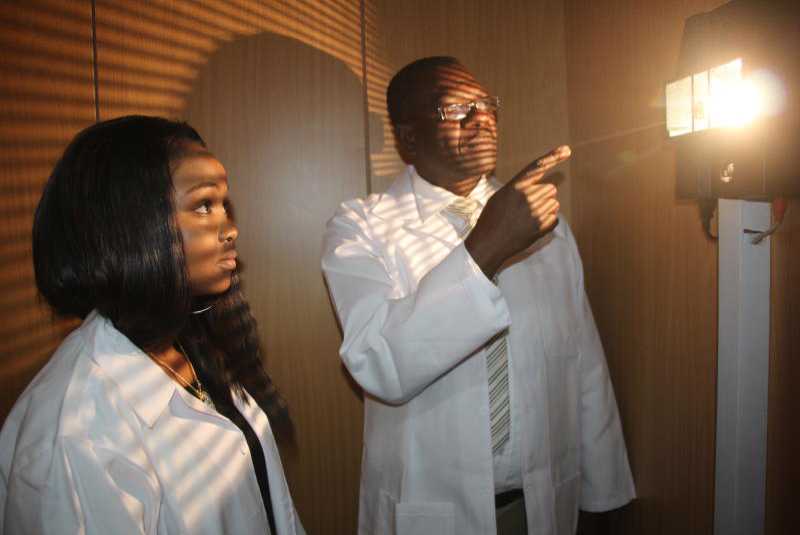×
The Standard e-Paper
Home To Bold Columnists

Evelyn Muthemba is taken through scanning process by Robert Ombiri (right) deputy principal Gift and Talent clinic where the body is scanned with a specialized machine which transmits images to experts in the United States of America for in-depth analysis of the brain in order to establish once gifts and talents. [Photo: Kennedy Gachuhi, Standard].
A new technology devised in the United States to help the youth realise their strengths for self-actualisation has been adopted in Kenya.